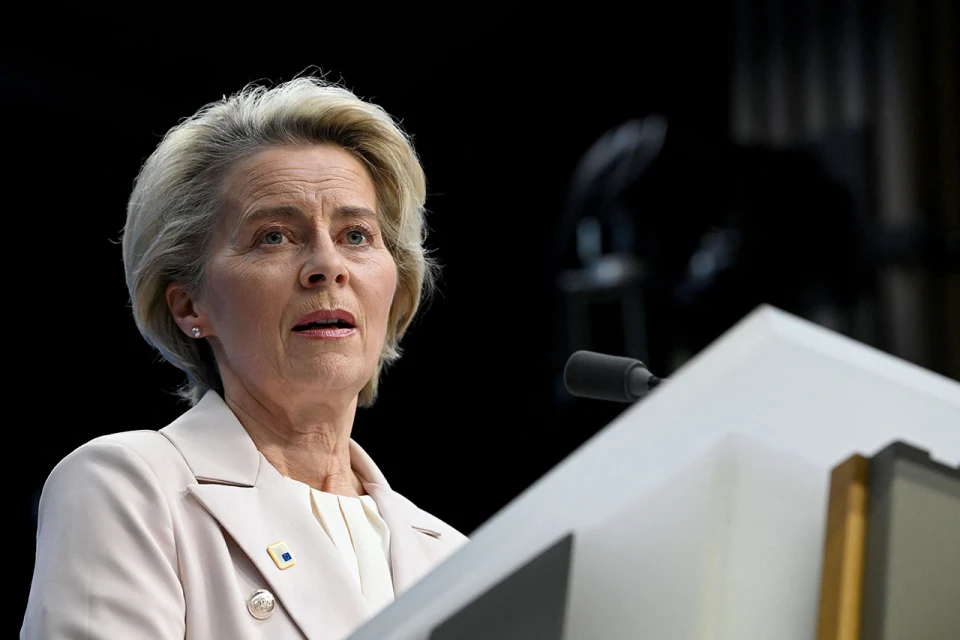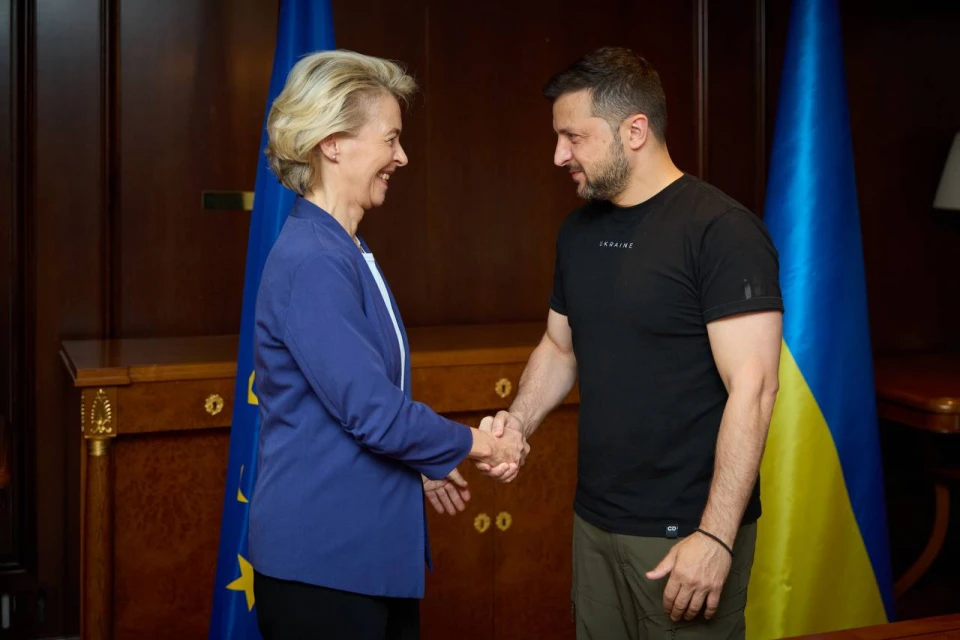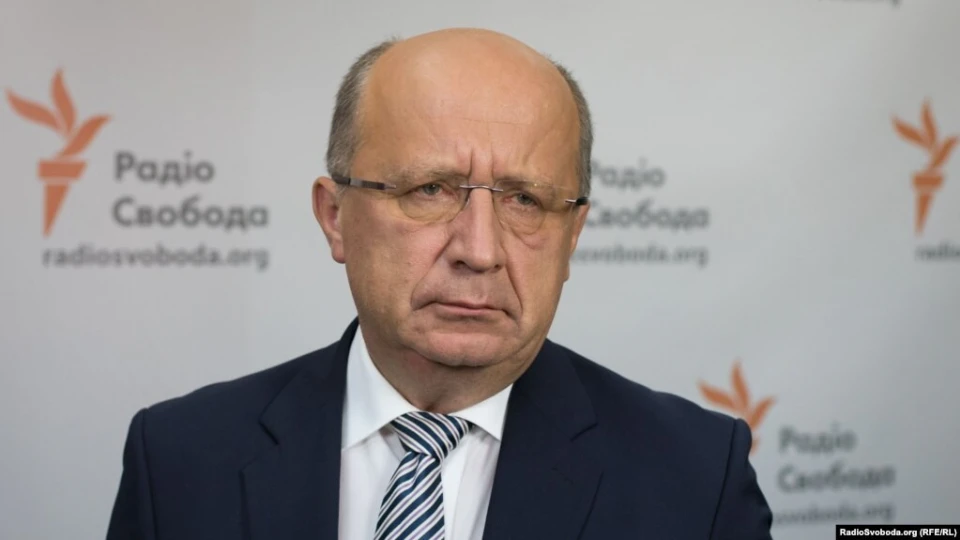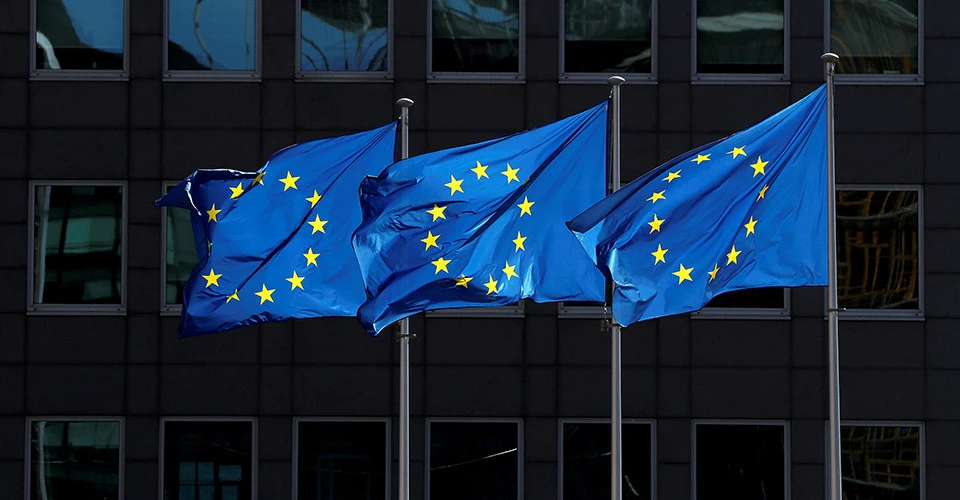
European Commission calls for start of Ukraine's accession talks to EU. What's next
On Wednesday, November 8, the European Commission recommended to the European Council to start negotiations with Ukraine on accession to the European Union. In this article, we will explain what this positive signal from Europe means for Ukraine and when these negotiations might actually start
The article is about:
- The process of fulfilling Ukraine's commitments to implement reforms undertaken during the process of becoming an EU candidate state: what has already been done
- What reforms still need to be completed
- When can negotiations on Ukraine's membership in the EU actually begin?
- What do European officials think: when can Ukraine become a member of the European Union?
7 reforms to start EU membership negotiations: what has already been done
"Today the Board has adopted the report on enlargement. Ten years ago, the Euromaidan protests began, where people were shot for wrapping themselves in the European flag. And now, ten years later, today is a historic day, because today the European Commission recommends that the EU Council start accession negotiations with Ukraine," said President Ursula von der Leyen in her speech after the European Commission meeting.
She emphasized: "Ukraine continues to face tremendous hardship and tragedy provoked by Russia's war of aggression. And yet, Ukrainians are deeply reforming their country, even as they are fighting a war that is existential for them".
When Ukraine was granted candidate status in June 2022, it committed to implementing seven key reforms necessary to start membership negotiations, the next important step in the process of European integration.
Today, the European Commission stated that out of the seven steps towards EU membership, Ukraine has fully completed four, namely:
-
Adopt and implement legislation on the procedure for the selection of judges of the Constitutional Court of Ukraine based on the assessment of their integrity and professional skills, in line with the recommendations of the Venice Commission.
-
Finalize the integrity vetting of the candidates for the High Council of Justice members by the Ethics Council and form the High Qualification Commission of Judges of Ukraine.
-
Ensure compliance of anti-money laundering legislation with the standards of the Financial Action Task Force (FATF), and adopt a strategic plan for reforming the entire law enforcement sector.
-
Adopt a law on media in line with the EU Audiovisual Media Services Directive.
"Ukraine has fulfilled over 90% of the necessary steps that we set out last year in our report," Ursula von der Leyen emphasized.

Ursula von der Leyen. Photo: Gettyimages
Corruption, de-oligarchization, national minorities: what reforms Ukraine still needs to complete
"The remaining reforms are already on their way – that is good – and the Commission commends these efforts," the head of the European Commission was optimistic about the current state of affairs with European reforms. But in reality, there is still a lot of work to be done.
There are three steps left to complete, two of which are actually key, and one is problematic:
-
Further strengthen the fight against corruption, in particular at a high level, as the European Commission demands "through proactive and efficient investigations, and a credible track record of prosecutions and convictions." In addition, the European Commission insists that Ukraine should adopt a law to increase the number of National Anti-Corruption Bureau staff and remove from the law on corruption prevention provisions limiting the NACP's authority to continue verification of assets that have already been verified and limiting the NACP's right to verify property acquired by the declaring parties before entering public service.
-
De-oligarchization - to limit the excessive influence of oligarchs in economic, political, and public life; this should be done in a legally sound manner, taking into account the forthcoming opinion of the Venice Commission on the relevant legislation. In addition, Ukraine still needs to adopt a law on lobbying in line with European standards as part of its action plan to fight the oligarchs.
-
(problematic step) Finalize the reform of the legal framework for national minorities currently under preparation as recommended by the Venice Commission. This step is problematic because it may become an obstacle at the stage when all 27 EU heads of state will have to vote in favor of starting negotiations with Ukraine on EU membership.
The Venice Commission's demands do not find full support in Ukrainian society, including postponing the transition of Ukraine's education system to the Ukrainian language, refusing to set high mandatory quotas for Ukrainian-language products in bookstores, allowing national minorities in areas of compact residence to print information signs without translation into Ukrainian, and, for example, criticizing Ukraine's restrictions on the use of Russian as the language of the aggressor state.
The main lobbyist for this reform is Hungary, which is friendly to Russia. In particular, on November 7, Hungarian Prime Minister Balázs Orban's political director said that Budapest would block the start of EU membership talks with Ukraine until all of Hungary's demands for changes to Ukrainian language and education legislation are met.
So when can negotiations on Ukraine's membership in the EU actually begin?
Let's return to Ursula von der Leyen's direct speech. "We have recommended today that the Council opens accession negotiations. We also recommend that the Council adopts a negotiating framework once Ukraine has carried out the ongoing reforms. On that, we will then report to the Council by March 2024."
Now let's decipher what was meant. The next meeting of the European Council, the summit of the leaders of all 27 EU member states, is scheduled for December 14-15, 2023. During the summit, the European Council will discuss and approve the document published by the European Commission today - the European Enlargement Package 2023. If all the EU heads of state vote in favor, it will be considered that the European Union is ready to start negotiations with Ukraine on joining the EU. But only after Ukraine fulfills the three reform steps listed in the previous section of this text.

Ursula von der Leyen and Volodymyr Zelenskyy. Photo: Zelenskiy/Official
That is, starting today, Ukraine must do everything to ensure that the EU's requirements are fully met. Only after that, the European Council, together with the European Commission, will prepare a new document: a framework conditions for negotiations, which will already spell out the topics for discussion and reforms that will be given attention in this process.
Rather, the reforms should be completed by March 2024. That's when the European Commission plans to present its next report on EU enlargement - on the progress of the candidate states, as it did today. And if in March next year, the European Commission states that Ukraine has fulfilled all seven steps, then a new stage in the process of Ukraine's European integration may come: the beginning of negotiations on Ukraine's membership in the European Union.
Is it realistic for Ukraine to complete all the reforms by March? The European Commission does not want to make public predictions, but the European Parliament believes that yes. At the very least, conversations on the sidelines indicate that European politicians are optimistic (moreover, many expressed disappointment that they failed to lobby for the start of negotiations in 2023, for which there were prerequisites).
Thus, the Espreso correspondent spoke with Andrius Kubilius, a member of the European Parliament from Lithuania, a member of the European Parliament's Committee on Foreign Affairs and the delegation of the EU-Ukraine Parliamentary Association Committee, who frankly stated that the European Parliament expects negotiations on Ukraine's membership in the European Union to begin in the spring of 2024.
"There are three reforms left to be completed. But the list includes many technical issues, such as increasing the number of employees in the National Anti-Corruption Bureau of Ukraine," Mr. Kubilius said. "However, special attention will have to be paid to the rights of national minorities, which Hungary, for example, insists on.

Andrius Kubilius. Photo: Radio Liberty
"I am convinced that Ukraine will cope with the reforms, and negotiations on its accession to the EU will begin in the spring," the MEP said.
However, the spring of 2024 is not the final verdict. As one of the European Council officials explained to Espreso on condition of anonymity, "The European Commission only approves recommendations and proposals, the EU leaders and the European Council make decisions in the EU." According to him, substantive negotiations with EU member states are now beginning in order to prepare a decision document for approval at the EU leaders' summit on December 14-15. This document will be finalized by December 12, before the meeting of the EU General Affairs Council, which will submit it for discussion by the EU heads of state during the European Council meeting.
Only after the decision is made by the EU leaders can we talk about real prospects for starting negotiations with Ukraine. "The decision on the next steps lies entirely with the leaders of the European Union," the interviewee emphasized.
When can Ukraine's negotiations with the EU end?
A good, and most importantly, truthful answer to this question was the dialogue that took place on November 8 during a meeting of the European Parliament's Foreign Affairs Committee, which was attended by an Espreso correspondent. During the committee meeting, immediately after the announcement of the approval of the 2023 enlargement package by the European Commission, European Commissioner for Enlargement Oliver Varhelyi held a question-and-answer session with MEPs on these documents.
During the discussion, a well-known MEP, Andrius Kubilius, asked the European Commissioner when he expects the accession negotiations with Ukraine to be completed.
Addressing this question to a representative of the European Commission, the chairman of the Foreign Affairs Committee, German David McAllister, noted that Oliver Varhelyi would need a crystal ball (used by fortune tellers) to answer.
Actually, Varhelyi answered in a similar way to a fortune teller: it is impossible to give an exact date at this time.
Indeed, it is worth recalling that, for example, Turkey started negotiations on joining the EU back in 2005, Montenegro in 2012, and Serbia in 2014. Negotiations with all of these countries are still ongoing, with no definite end date (although negotiations with Turkey have been frozen since 2016 due to the systematic violations of human rights and other political discussions with the EU).
The Baltic states and Poland, on the other hand, completed their accession negotiations in 3-4 years. While, for example, negotiations with Croatia, which became an EU member in 2013, lasted more than eight years.
This implies that in order to make a final decision on Ukraine's accession to the EU, in addition to deep reforms of Ukrainian legislation, harmonization of the economy with the European one, and, most importantly, internal reform of the EU itself, the main factor is the political will of the leaders of all EU member states, especially the most powerful states of the "old Europe."
If there is political will, mechanisms will be found to speed up the accession negotiations. That is why it is more important than ever for Ukrainian leaders and diplomats to demonstrate a real desire to implement reforms, not just in words, but in deeds. Especially in the areas of anti-corruption and de-oligarchization, which is what Europe really expects from Ukraine.
- News














































